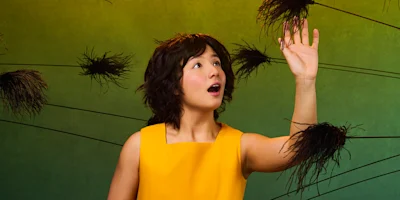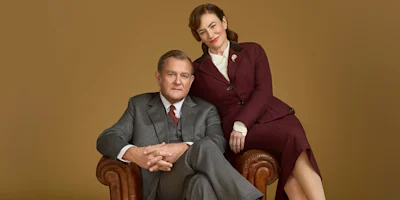
Friday Briefing: Is social media too toxic for theatre, why the Evita casting rumours were wrong
Is social media too toxic?
Daniel Evans, artistic director at Chichester Festival Theatre, recently wrote a column in The Stage in which he said: "I've lost count of the number of creative people who told me recently that Twitter is seriously affecting their mental health. For some, the ubiquitous self-aggrandisement and humble-bragging bring on serious status anxiety; for others, an exponential increase in FOMO ('fear of missing out'); for a few, an overwhelming feeling of low self-esteem. It's no wonder. The culture of outrage we're living through, coupled with the sound-bite nature of the platform, means that conducting a nuanced debate is nigh-on impossible."
Well said. What was once a platform for enthusiastic sharing of mutual passions has become too often a place for attacking others. As an active and prolific Twitter user myself, I've no doubt been guilty of doing exactly that myself; but I have also - too often - been the victim of a mob descending upon me.
Sometimes this has been entirely unwitting. I was heading to see a performer I particularly admire in Kinky Boots when I discovered he wasn't on - so I (foolishly, with hindsight) posted that I was going to skip it. This caused a social media furore, in which I was accused of not respecting the understudy. Now I've regularly championed the work of understudies - they are a crucial part of a show's back-up, ensuring that the show can indeed go on - and have been delighted to see many in my time. But on this occasion, I was only going to see the show to see a particular performer, not the show itself (which I'd seen nine or ten times already), so however good the understudy may have been, I didn't want to see it again unless the performer I wanted to see was in it.
Another time, director Rupert Goold stumbled into a social media disaster of his own when he posted a kind send-off message to two of his members of staff, but which made the mistake of disrespecting the lowly staff origins they'd come from. I wrote a column for my own website, in which I said, "These Twitter wars are becoming an increasing trend, and those of us who are active on social media find ourselves frequently in their crosshairs. As a critic, I have long believed that those of us who give criticism need also to be able to take it - it is only right that readers (or those whose work we review) have a right of reply.
"And one of the early pleasures of Twitter was the interactions it helped to facilitate - that we were no longer writing in a vacuum, but were part of an active and frequently lively discussion around the theatre..."
But I went on, "Twitter has increasingly become a bully-pit of amplified grievance too. Perhaps it's a reflection of the powerlessness people feel in the world right now, and an abusive tweet can make someone feel they are reclaiming a tiny bit of power. Being on the receiving end of it, though, can be overwhelming: I'm only one person, the twitter mob is thousands. And the biggest mistake I've made is try to engage with some of the complainants; it only amplifies and prolongs the debate."
As one director wrote to me: "I really worry that with the decline in print sales of the national papers that Twitter will become the only accepted place for evaluation of theatre. That would be a complete disaster and be a victory for a certain kind of identity politics over things like, say, good acting, storytelling and theatricality... The erosion of those principles by the mob, who seem to think just because you call yourself a writer, or a director, or even a critic, then you are one, is genuinely almost as great a threat to us as the funding cuts we keep getting!"
A Black Eva Peron isn't happening after all.....
Back in June, The Stage trumpeted a headline: 'Exclusive: Open Air Theatre sets sights on black lead for Andrew Lloyd Webber's Evita'. The story reported, "A casting breakdown for the lead role, seen by The Stage, says the production is looking for a black performer to play the part. It states: "Appearance: Black. Other areas, black Caribbean, mixed race, African American."
In fact, director Jamie Lloyd subsequently clarified on Twitter: "Actually, we're meeting many different people, including women of colour from all backgrounds."
And the casting announcement today confirms that they've not found a black Eva after all: Samantha Pauly, who has previously played the role in two different American productions, is described in the Daily Mail by Baz Bamigboye as "a Puerto Rican-native American from Chicago".
But ethnicity is not what acting is about anyway: actors are stepping into other people's shoes. And Pauly has obviously proved her credentials in previous outings of the show. She is, however, to all intents and purposes unknown over here, just as the stunning 2006 Eva Peron of Michael Grandage's production Elena Roger was also entirely unknown, too. So maybe a new star will be born, in the same way that the show propelled the original Eva Peron of Elaine Paige to the theatrical stratosphere.
A theatrical geography lesson
Lyn Gardner wrote a column in The Stage about the way theatres map our lives, in which she stated, "My life has been mapped by theatre as much as it has been by life events. The two entwine - sometimes the mapping is psychic and emotional and sometimes geographical. Much of my knowledge of London results from going to see plays in spaces both temporary and permanent."
I've done precisely the same thing in just about every city I've ever visited. In fact, I really don't go to a city unless its to see a show there, so can map my way around Britain by the cities I've visited (and often re-visited) to do so. I was in Manchester again last weekend to see a phenomenal new production of West Side Story at the Royal Exchange, a theatre that is high on my list of favourite theatres in the world: a theatre that looks like a Tardis from outer space has landed in the grand hall of a former Manchester trading room. I first went to the Royal Exchange, however, when they were temporarily displaced owing to bomb damage in an IRA attack on the city centre, and operating in another space, to see one of my all-time favourite plays, The Deep Blue Sea with Susan Wooldridge as Hester Collyer.
I also went to see the last matinee of Rags, a musical that famously flopped in its original Broadway production in 1986, at Hope Mill Theatre - another theatre I now love, and have been following since it first opened a few years ago. Several of their shows have come to London, including Pippin, Hair and Yank!; I was delighted to see Rags with the wonderful Rebecca Trehearn.
And this weekend I'll be in Leicester for the National Student Drama Festival - an annual festival celebrating young talent - taking place mostly at Curve.
Originally published on









